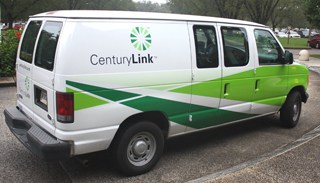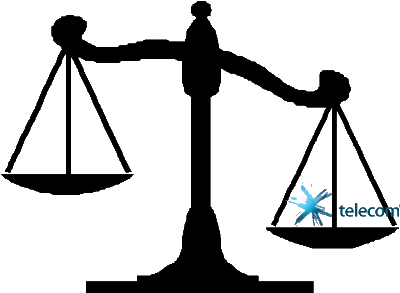 Stop the Cap! reader Davey in Arizona was displeased to receive notification his Internet Service Provider, CommSpeed, suddenly announced an Internet Overcharging scheme that limits customers to two levels of service: a basic $40 plan with a ridiculously stingy 10GB monthly usage allowance, or a more generous (and double the price) $60 plan that comes with a 200GB usage cap.
Stop the Cap! reader Davey in Arizona was displeased to receive notification his Internet Service Provider, CommSpeed, suddenly announced an Internet Overcharging scheme that limits customers to two levels of service: a basic $40 plan with a ridiculously stingy 10GB monthly usage allowance, or a more generous (and double the price) $60 plan that comes with a 200GB usage cap.
Davey is particularly upset the company plans to punish customers who exceed the allowance with a stinging $2/GB overlimit fee. It will not be difficult for customers to blow past CommSpeed’s standard 10GB plan limit if they discover file backup, online video, or downloading. If they do, CommSpeed’s overlimit fee will be coming soon to a bill in their mailbox. For those who use the Internet to watch television and movies, the only real options are to watch less or upgrade to a more expensive plan with a more realistic usage allowance that can accommodate high bandwidth applications.
CommSpeed claims their “advanced 4G network combines the best features of cellular, cable modem & DSL, and Wi-Fi networks, without the inherent limitations associated with these legacy systems.” The company brands itself as “Tomorrow’s Internet Today.”
What they don’t mention is today’s wireless ISP’s are increasingly challenged by the growing usage demands consumers place on providers. CommSpeed’s claim that their network “was designed and built, from inception, to deliver a full range of broadband content and applications” flies in the face of their 10GB usage limit. Fiber, cable broadband and even telephone company DSL has a better track record handling increasing usage demands, as long as providers maintain investments in their respective networks.
CommSpeed’s usage cap tells the real story — their network may not be able to handle the growing traffic from customers in their northern Arizona service area.
“The Internet has seen tremendous growth in total usage over the last year. New applications are being developed everyday and these applications are causing an ever increasing demand for bandwidth. Quite simply, the content of the Internet has evolved,” CommSpeed explains on a page dedicated to explaining their new caps.
Unfortunately for wireless, until more spectrum and better technology is available, usage limitations are an increasing reality for customers stuck using these networks. It’s why Stop the Cap! rarely recommends wireless broadband as a primary Internet service except as a last resort, when other choices simply are not available.
Still, we’ve seen much worse from other Wireless ISPs. CommSpeed’s 200GB limit on their $60 tier is more generous than average. Plus, the company takes the limits off during the overnight hours of midnight to 6AM.
We also think the company’s usage guestimates are a more honest approximation of real-world usage, not the ridiculous “send 10,000,000 e-mails and download 500,000 songs” reassurances we usually see from Internet Overcharging ISPs:
| Average user with a 10GB allowance | ||
|---|---|---|
| Total Gigabytes Used = 9.9GB | ||
| Actual internet consumption may vary. | ||
| Per Month | Total Bandwidth Consumed | |
| General Internet Browsing | 100 hours | 500MB |
| Email Communication (total sent/received) | 400 emails | 20MB |
| Internet Phone Service | 500 minutes | 1.1GB |
| Music Downloads | 100 Tracks | 600MB |
| Movie Streaming | 3 movies | 6GB |
| Online Gaming | 100 hours | 1.5GB |
CommSpeed’s old plans ranged in price from $34.95 for basic 768kbps-1.5Mbps service to $54.90 for 1.5-6Mbps service, depending on the technology in use in the area. The new plans bring a $5 rate hike and usage caps — just two reasons why customers like Davey are so upset. They’ll be even more upset if their bill also include overlimit fees. Stay tuned.
[flv width=”608″ height=”380″]http://www.phillipdampier.com/video/CommSpeed 4G – Tomorrow’s Internet Today.flv[/flv]
CommSpeed heavily promotes its newer 4G wireless broadband service, claiming its great for online video, downloading, gaming, and more, as long as you don’t use it too much. In 2012, CommSpeed throws up limits on their wireless experience. (3 minutes)


 Subscribe
Subscribe






